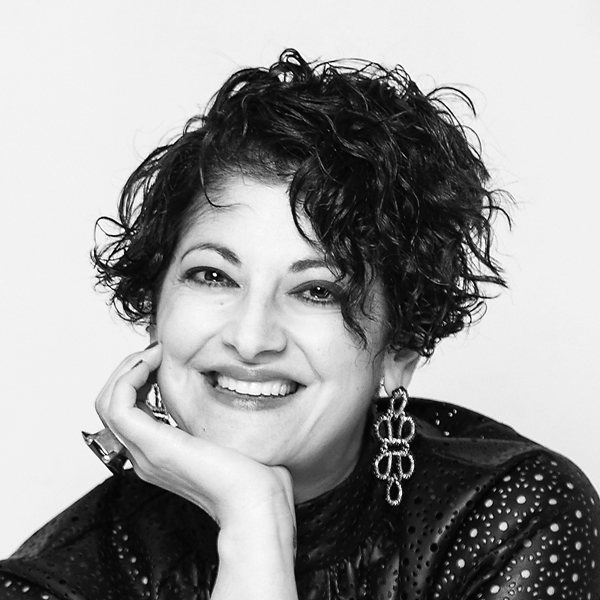
by Zovig Garboushian
‘ll start by saying that I don’t believe in imposter syndrome. When I hear those words, I cringe. And when I listen to them applied to women, I cringe even more. Imposter syndrome is used frequently to describe the self-doubt, uncertainty, and unsureness which can happen to anyone, but is particularly pronounced in professional women because we work within systems and institutions designed for men.
When we believe what our feelings tell us as truth, we run the risk of slowing or even stopping our forward momentum.
Imposters are fakes, frauds, people who want to fool you into believing they’re something or someone they’re not. Syndrome sounds like we’ve fallen ill and desperately need a fainting couch. Imposter syndrome is used to describe the temporary self-doubt, uncertainty, or insecurity that can come from being the only woman in the room, stepping into something new, and taking risks. Labeling that experience as an “imposter” is, at best, uncompassionate and offensive.
Instead of labeling ourselves as imposters, I’d prefer to look at the emotions and thoughts that come with the experience, because that’s the only way we can take the stigma out of it and debunk it as being wrong.
My first experience with what we call imposter syndrome happened in grade school. I was starting the fifth grade at a new school and was late for my first day. I got to my classroom, and when I opened the door, all the students swung their heads around and stared at me. It felt like the earth came to a record-screeching halt. No one invited me in—not the teacher, not any students—and so I stood there frozen, feeling like an outsider and physically being on the outside.
I don’t recall how long it took me to finally enter the room and find my desk, but it seemed like I was standing at the threshold for a year. I was humiliated. All I wanted was to blend in with my new schoolmates; instead, I stood out.

I Don’t Believe in Imposter Syndrome
‘ll start by saying that I don’t believe in imposter syndrome. When I hear those words, I cringe. And when I listen to them applied to women, I cringe even more. Imposter syndrome is used frequently to describe the self-doubt, uncertainty, and unsureness which can happen to anyone, but is particularly pronounced in professional women because we work within systems and institutions designed for men.
Imposters are fakes, frauds, people who want to fool you into believing they’re something or someone they’re not. Syndrome sounds like we’ve fallen ill and desperately need a fainting couch. Imposter syndrome is used to describe the temporary self-doubt, uncertainty, or insecurity that can come from being the only woman in the room, stepping into something new, and taking risks. Labeling that experience as an “imposter” is, at best, uncompassionate and offensive.
Instead of labeling ourselves as imposters, I’d prefer to look at the emotions and thoughts that come with the experience, because that’s the only way we can take the stigma out of it and debunk it as being wrong.
My first experience with what we call imposter syndrome happened in grade school. I was starting the fifth grade at a new school and was late for my first day. I got to my classroom, and when I opened the door, all the students swung their heads around and stared at me. It felt like the earth came to a record-screeching halt. No one invited me in—not the teacher, not any students—and so I stood there frozen, feeling like an outsider and physically being on the outside.
I don’t recall how long it took me to finally enter the room and find my desk, but it seemed like I was standing at the threshold for a year. I was humiliated. All I wanted was to blend in with my new schoolmates; instead, I stood out.
Thinking back to that moment, it’s analogous to the leadership experiences I and my clients have had. Like being a newly minted CFO about to present to a room full of men in your first board meeting. Or raising your hand in a team meeting to ask the tough question everyone else avoids while trying not to seem pushy.
No matter the scenario, the common denominator is that it can feel like we’re not good enough, that we need to be something else and something better to succeed. It’s a moment when our real-world achievements don’t match our self-belief.
But what if instead of fearing that we don’t have what it takes and pressuring ourselves to be who we think we should be, we embrace the imposter experience as a sign that we’re breaking a barrier, that we’re onto something big?
When we believe what our feelings tell us as truth, we run the risk of slowing or even stopping our forward momentum. We may say no when we want to say yes, and we may turn down the opportunity rather than grab it with both hands; we may stay quiet when we have something compelling to say.
While the imposter experience is not our fault, it is on us to assert some space between ourselves and our feelings. I like to think of the imposter experience as a necessary and intense inflow of important information—the emotions and stories—which can force us to get into the habit of self-validation and deeper self-compassion.
So prime yourself ahead of time, or give yourself time to debrief and reflect after. Do this kind of self-awareness work in tiny stages (and I do mean tiny). Start by simply noticing yourself the next time you’re experiencing what is called imposter syndrome. What thoughts tag along, and are they in service of you? Allow yourself a chance to reframe what you feel as uncertainty or insecurity (or another name that feels right for you) and permit yourself to let go of what you make those feelings mean.
All you’re going for is the ability to press pause on the internal storytelling long enough to unlink from it and get reconnected to what you know in your bones: your years of experience, your ability to lead with empathy and decisiveness, your technical chops, industry expertise, and so on.
Every time we step up, our confidence will get retested, and it’s a moment to meet ourselves where we are, imperfections and all. If we can practice putting a pause on the imposter swirl, we can recognize it for what it is—a moment in time, not a permanent state or a referendum on who we are as people. Then, we can embrace the feelings as information and have the freedom to make conscious choices about how we want to proceed.
